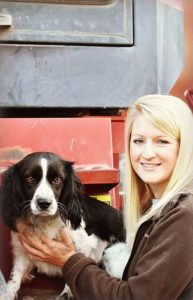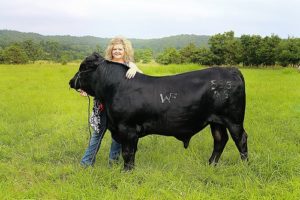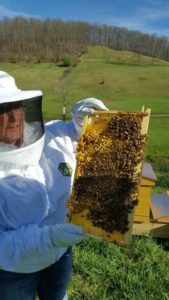 Across the country, women are the heart of many family farming operations. As part of Women’s History Month, USDA’s Farm Service Agency is highlighting the work of women agricultural producers across the country.
Across the country, women are the heart of many family farming operations. As part of Women’s History Month, USDA’s Farm Service Agency is highlighting the work of women agricultural producers across the country.
Here are a few of these farmers’ stories:
Meet Brittany Caskey
Raised in the small town of Hunter, Arkansas, Brittany Caskey grew up dreaming of becoming a farmer. Her lifelong dream came true in 2017 when her employer, a farm operator, decided to retire. She was faced with the decision to find a new farmer or to start her own. She went with the latter.
After counsel from neighboring farmers and her local FSA farm loan officer, she decided to own her own operation, growing soybeans. She was able to get a loan through FSA’s farm loan programs. Brittany also was able to use FSA’s guaranteed loan program, where a private bank financed part of her operating expenses and FSA provided a guarantee against a possible financial loss.
“They got me started completely,” she said. “I went from not having anything, to being able to get all of the stuff I needed to start my operation. Brittany tapped into other FSA programs like the Price Loss Coverage program, which offers a safety net to agricultural producers when there is a substantial drop in prices or revenues for certain crops.
Meet Dakota Williams
At an early age, Dakota Williams already knew what she wanted to do with her life – own a farm and raise cattle.
 A member of the Cherokee tribe and a third-generation farmer working the same land as her grandparents, Dakota began raising cattle at a young age.
A member of the Cherokee tribe and a third-generation farmer working the same land as her grandparents, Dakota began raising cattle at a young age.
By the time Dakota was 12 years old, she began her own cattle operation. Now, a few years older, Dakota has expanded her cattle business. “[Farming] is all I’ve ever known,” said Dakota. “Working the same land as my grandparents… not many people can say they live in an area where their ancestors came from still trying to make that land better.”
With the help from FSA loans, Dakota went from a youth loan to a microloan, and will soon be able to graduate to commercial lending and meet the goal of owning her own farm.
Read more about Dakota Williams
Meet Terri Jo Bennett

Terri Jo Bennett operates a small, diverse farm in West Virginia, where she raises and sells several varieties of berries, maple syrup, eggs and honey.
In June of 2003, Terri, along with her family, moved to an 85 acre family farm in Tallmansville, an unincorporated community in Upshur County, West Virginia.
Terri noticed the farm was home to several maple trees, so in 2014, she decided to produce maple syrup. That initial system has grown to tapping 91 trees and producing over 13 gallons of syrup in 2017. A fellow beekeeper recommended that she report her honeybees to her local FSA office and sign up for the Noninsured Crop Disaster Assistance Program (NAP).
Fortunately she did, because the Northeast experienced a mild winter and an unseasonably warm spring this year, which put an end to the maple tapping season.
“The assistance offered through NAP for damage and loss of production yields helps to offset the rising cost of farming,” Terri said.
Participating in NAP helped Terri to recover some of the income loss from her low syrup production.
Read more about Terri Jo Bennett
Learn More
To learn more about FSA programs, visit fsa.usda.gov or contact your local USDA service center. You can find more stories like these on FSA’s FencePost blog.






One Response to FSA Helps Women Farmers Improve and Invest in Ag Operations